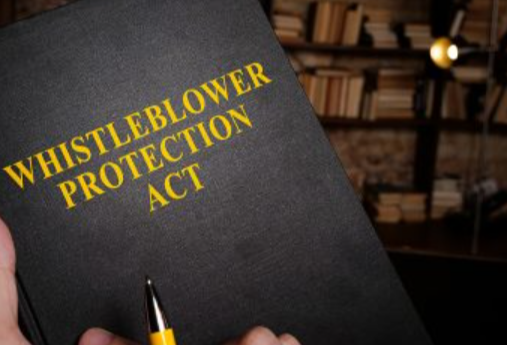Whistleblower Protections: Safeguarding the Truth

Key Takeaways
- Understanding the importance of whistleblower protections in modern society.
- The role of legal frameworks in protecting whistleblowers.
- Real-world examples of whistleblowers making a difference.
- Resources for potential whistleblowers to navigate the process safely.
The Role of Whistleblowers in Society
Whistleblowers are crucial in maintaining transparency and accountability in various sectors, including government, healthcare, and the corporate world. Exposing wrongful acts helps uphold ethical standards and protect the public interest. A whistleblower lawyer is not unusual in guiding these brave individuals through the treacherous waters of legalities and personal risk. The lawyers’ adept navigation of intricate legal frameworks allows whistleblowers to present their arguments while effectively protecting their identities and jobs.
However, the road for whistleblowers is fraught with challenges, making legal assistance indispensable. Professional legal guidance ensures that the whistleblower’s rights are safeguarded, encouraging more people to come forward with critical information. Individuals may remain silent without such protections, leaving unethical practices unchecked. The role of legal counsel is vital in bolstering the courage of whistleblowers, enabling them to make disclosures that are in the best interest of society.
Legal Protections for Whistleblowers
Several legal frameworks protect whistleblowers from retaliation, ensuring they feel secure disclosing information about illegal activities. The Whistleblower Protection Act, for example, safeguards federal employees who report misconduct. This act prohibits retaliation against individuals exposing fraud, inefficiency, or illegalities, promoting a culture of transparency and accountability. Consulting a whistleblower lawyer can provide essential guidance and support, upholding legal protections and maintaining the whistleblower’s rights.
These legal shields help maintain the integrity of systems by promoting transparency. In addition to federal laws, many states have statutes that provide similar protections. Internationally, countries like the U.K. and Australia have also enacted robust whistleblower protection laws, recognizing the global importance of safeguarding those who come forward with critical information. By understanding these protections, potential whistleblowers can make informed decisions about reporting misconduct.
Challenges Faced by Whistleblowers
Despite legal protections, whistleblowers often face significant challenges, including potential job loss, legal battles, and personal risk. Studies have shown that many individuals hesitate to come forward due to fear of reprisal. The fear of retaliation can deter potential whistleblowers from acting, thus allowing unethical practices to persist unchecked.
Organizations like Transparency International provide resources and support to help whistleblowers navigate these challenges. These organizations offer legal advice, advocacy, and emotional support, assisting individuals to make informed decisions about blowing the whistle. Addressing the legal and personal ramifications creates a more supportive environment for whistleblowers, increasing the likelihood that crucial information will be disclosed.
Steps to Take If You Become a Whistleblower
Document the Wrongdoing
Meticulous documentation of the wrongdoing is essential. This evidence is crucial when presenting your case to legal authorities or internal compliance teams. You must gather and arrange all pertinent data, such as correspondence, notes from meetings, memos, and any further supporting material for your claims. This detailed record will provide a solid foundation for your disclosures and help establish the credibility of your allegations.
Seek Legal Advice
Understanding your rights and protections under various legal frameworks is vital. Consulting with a whistleblower lawyer can clarify and ensure you are protected. A legal specialist can help you choose the best course of action, navigate the complexities of the legal system, and defend you in court. This professional support is crucial for ensuring that your disclosures are handled appropriately and your rights are upheld.
Report to Appropriate Authorities
Ensure your report reaches the correct authorities, whether an internal compliance board or an external regulatory agency. Select the proper channel depending on the jurisdiction and type of violation. Appropriately directing your disclosures increases the chances of an effective response and minimizes the risk of retaliation. Be mindful of the specific procedures for reporting in your organization or jurisdiction to ensure that your report is taken seriously and acted upon promptly.
Use Secure Channels
If the information is susceptible, consider secure, anonymous channels. This precaution helps protect your identity and ensures your safety. Various secure platforms and hotlines are designed to facilitate anonymous reporting, allowing whistleblowers to disclose information without fear of exposure. These channels can provide additional protection and encourage more individuals to come forward with critical information.
Read more Anxiety Relief at Your Fingertips: Exploring Online Treatment Options
Prepare for Potential Fallout
Be ready for possible repercussions and create a support system to help you navigate any challenges that may arise post-disclosure. This support network may consist of friends, family members, colleagues, and professional connections who are informed about your situation and can offer practical and emotional assistance. Additionally, consider engaging with whistleblower advocacy groups that provide resources and support tailored to your needs. Preparing for potential fallout ensures that you are effectively aware of the impact of your disclosures.
Resources for Whistleblowers
Various organizations offer support and guidance for whistleblowers. These resources can provide legal assistance, emotional support, and practical advice. Websites like the National Whistleblower Center provide comprehensive information for those considering blowing the whistle. This includes detailed guides on your legal rights, the reporting process, and where to seek additional support.
With knowledge and support, whistleblowers can make well-informed decisions safeguarding their rights and well-being. Access to these resources can empower individuals to act confidently, knowing they have the backing of experienced professionals and advocacy groups. Utilizing these tools effectively can enhance the overall impact of whistleblowing efforts, promoting accountability and ethical conduct across various sectors.
The Future of Whistleblower Protections
The need for solid whistleblower protections has never been more significant, with the world becoming more linked. Ongoing legislative efforts aim to strengthen these protections and ensure whistleblowers can act without fear of retribution. For instance, recent amendments to existing laws have expanded protections to a broader range of employees and introduced stricter penalties for retaliation. These modifications result from a growing understanding of whistleblowers’ critical role in advancing accountability and openness.
Public awareness and support are vital in advancing these initiatives and creating a safer environment for truth-tellers. Public relations efforts, advocacy campaigns, and educational initiatives all contribute to a greater understanding of the value of whistleblowers and the requirements for legal protections. By building a culture that values and supports whistleblowers, society can encourage more individuals to come forward with critical information, ultimately fostering a more transparent and accountable world.
Conclusion
With continued progress, the path for whistleblowers will become less daunting and more secure. By strengthening legal frameworks, providing comprehensive support, and promoting a culture of transparency, we can create an environment where whistleblowers feel empowered to act in the public interest. These efforts will ensure that the brave individuals who come forward with vital information are recognized and protected, paving the way for a more ethical and accountable society.




